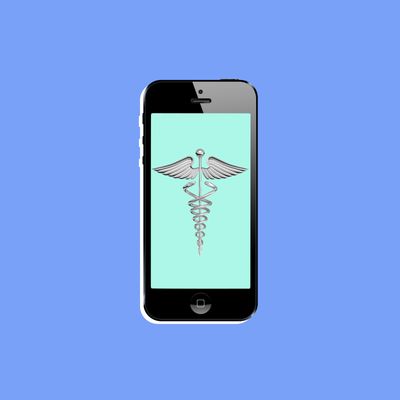
If you enter “health” as a search term in the Google Play store, the results stretch down forever: calorie counters; blood-pressure testers; a music-therapy app. There’s no shortage of so-called mobile health (mHealth) apps for those who want to turn their phones into a small corner of a health clinic. As of March 2013, notes a new article in The New England Journal of Medicine, there were 97,000 mHealth apps available. The problem, argue the authors, is that these apps aren’t effectively regulated by the Food and Drug Administration, and, as a result, many of them could be useless, if not harmful.
The authors explain how shaky the mHealth scene has become:
In 2011, Pfizer sent a Dear Doctor letter warning that its Rheumatology Calculator app was generating mistakenly high and low scores for measuring tender and swollen joints in patients with arthritis, sometimes by as much as 50% [PDF]. In 2012, Sanofi Aventis recalled its diabetes app because it was miscalculating insulin doses, which might lead to “dangerously low or high blood glucose levels in diabetic patients.” Broader reviews show mHealth apps that make claims lacking scientific support, are designed without the input of a medical professional, or even contravene evidence-based guidelines. Some apps simultaneously promise medical benefits while disclaiming that the app is for entertainment purposes only. For example, the app Pocket Doctor Lite, which purports to provide “diagnosis by body area,” included a disclaimer on the iTunes Stores that “Pocket Doctor cannot guarantee the accuracy of the diagnoses. You use it at your own risk.”
None of this is to say there isn’t great potential in mHealth. As the authors point out, properly built apps could take a significant bite out of disparities in health access, at least for certain basic forms of diagnostic and preventative care.
The problem is that most people, lacking medical training, simply can’t tell whether the stuff they’re downloading passes the quack test. Public-health officials have been worried about the issue of inaccurate medical information online for at least a decade and a half now, and as first internet and then mobile internet use has exploded, the number of sites (and now apps) making unverified claims has shot up as well, leading to a frontierlike environment where just about anything goes, as Scientific American explained a couple years ago.
Without delving too deep into the wonky details, at the moment the FDA takes a pretty hands-off approach when it comes to the mHealth scene, with the exception of apps that pose a clear risk to patient safety if they’re misused. But there’s “a considerable gray area between products that clearly must be regulated to ensure safety and those that pose little or no risk to patients,” the New England Journal of Medicine article notes. The most “radical” of their suggestions is to set up a separate pathway to FDA clearance for mobile health apps — one that takes into account the speed with which they can be tweaked and updated. At the moment, they write, it’s inefficient to “shoehorn” mHealth into processes designed for older, slower forms of technology.
As for what does constitute reliable online medical information, it’s a bit tricky. When it comes to symptom checking, a lot of people use WebMD, but there’s been some controversy over its ties to pharmaceutical companies, as laid out in this New York Times Magazine column from a few years ago recommending people use the the nonprofit Mayo Clinic’s symptom checker instead. Science of Us contributor Maia Szalavitz, however, didn’t find this critique particularly compelling, and didn’t see anything wrong with using the two sites to complement each other.
For what it’s worth, there don’t seem to be any major critiques of the Mayo Clinic’s site floating around, so it appears to be a safe bet. If you use other sites, be very wary of links that lead you to drug-company-supported diagnostic tests that are hard to distinguish from legitimate ones, either on separate sites or “sponsored” pages.
As for mHealth? Unless the app in question is associated with a medical institution you know and trust, or unless you can find specific information backing up its claims and methods, it’s best to cast a very wary eye at anything health-related that can be downloaded to your phone. At least until the FDA gets its act together.




